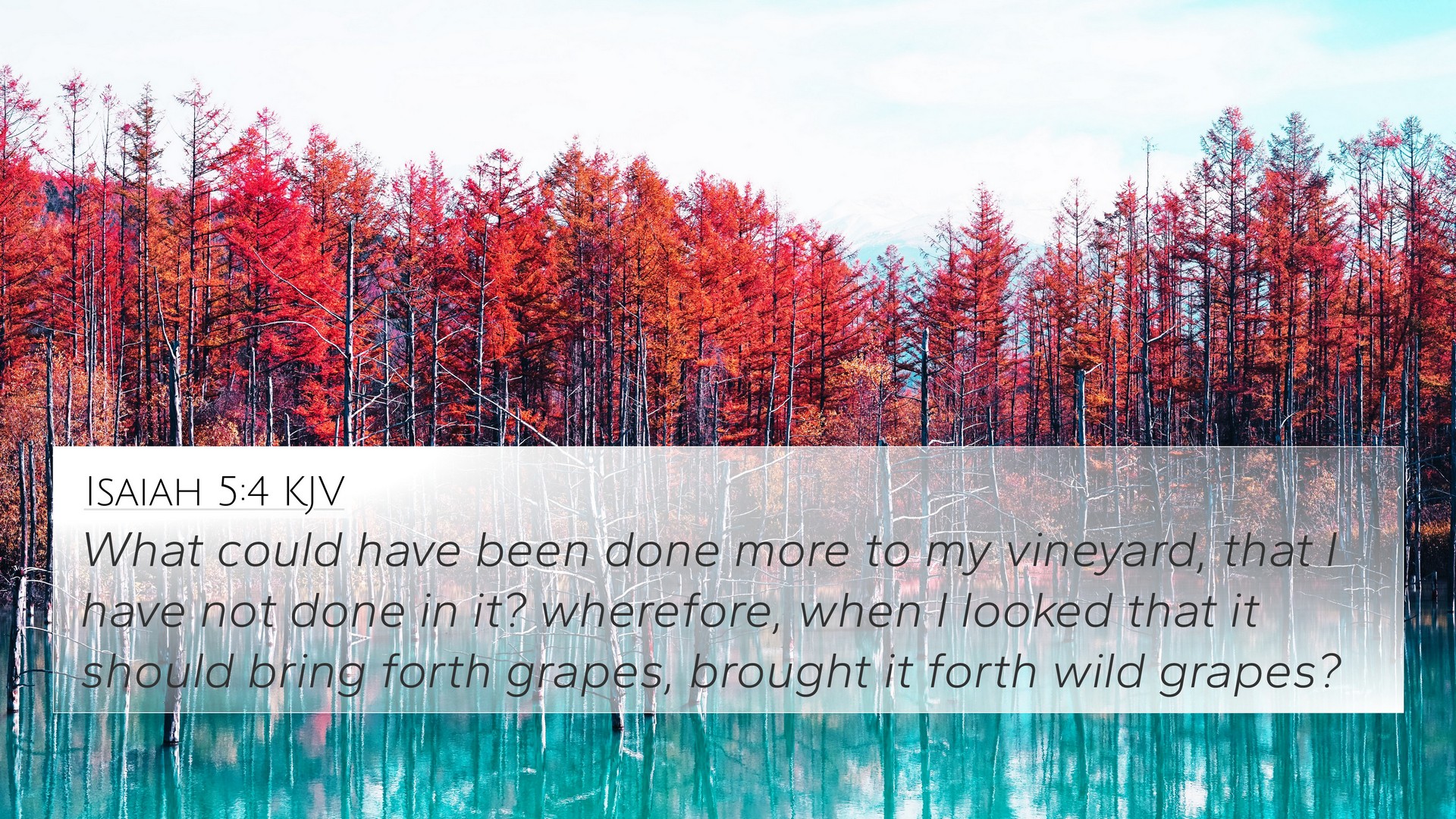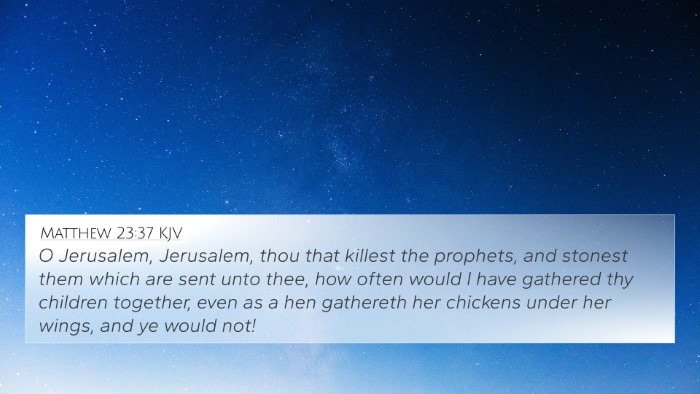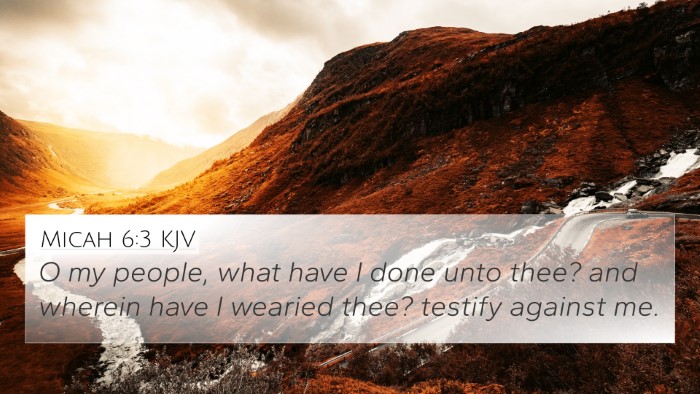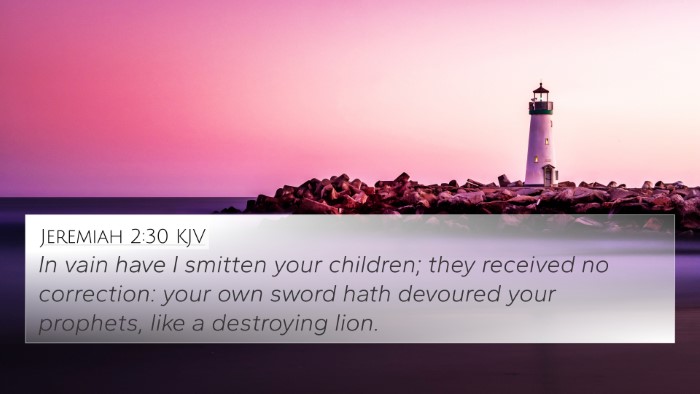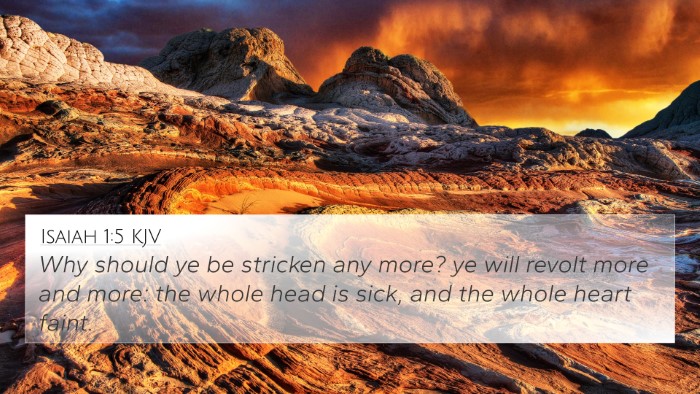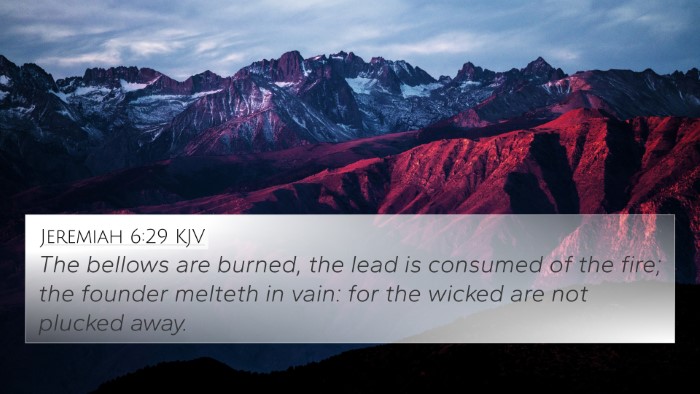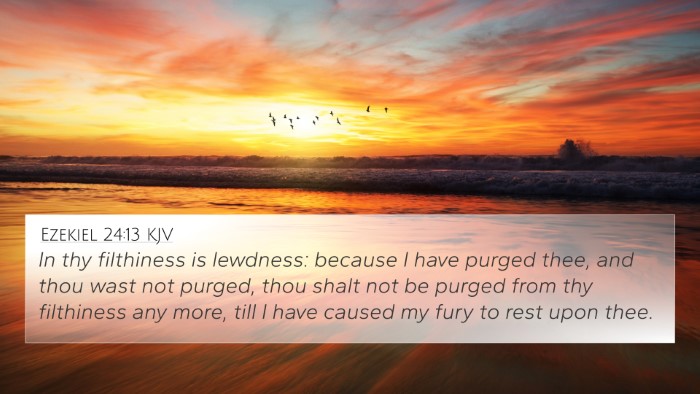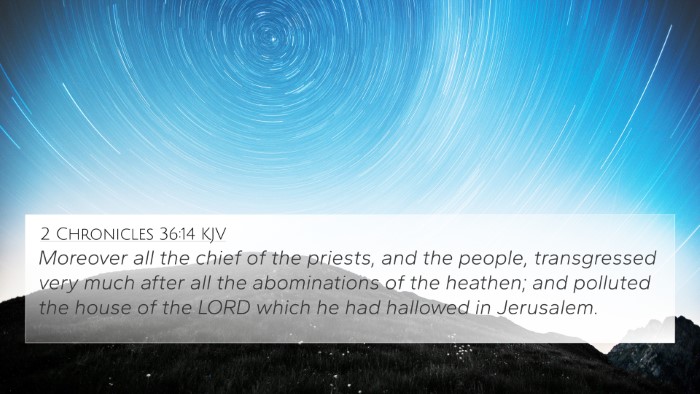Understanding Isaiah 5:4
Isaiah 5:4: "What more could have been done for my vineyard than I have done for it? When I looked for good grapes, why did it yield only bad?"
Contextual Background
The verse is part of a larger passage in which God uses the metaphor of a vineyard to depict Israel. Here, the prophet Isaiah conveys God's disappointment with His people, who have failed to produce the expected righteousness and justice.
Interpretative Insights
This verse illustrates God's question regarding Israel's unfaithfulness despite His abundant care and provision. The vineyard represents God's chosen people, and the expected fruit symbolizes righteousness and justice.
Commentary Insights
- Matthew Henry: Henry emphasizes that God lavished His love and protection on Israel but laments the disappointing outcome. He points out that God's efforts highlight the ingratitude and rebellion of the people.
- Albert Barnes: Barnes mentions the idea of moral responsibility, asserting that with privileges come expectations. He elucidates that the "good grapes" symbolize the virtues that were desired, yet Israel produced "bad" fruits, signifying sin and injustice.
- Adam Clarke: Clarke draws attention to the metaphor of the vineyard and notes that God’s inquiries indicate His justice and the seriousness of their moral failures. He highlights the intensity of God's efforts on behalf of Israel.
Connections with Other Scriptures
Isaiah 5:4 is deeply interconnected with various Biblical texts that discuss themes of accountability, divine expectation, and the consequences of disobedience:
- Jeremiah 2:21: "Yet I planted you like a choice vine of sound and reliable stock. How then did you turn against me into a corrupt, wild vine?"
- Matthew 21:33-41: The Parable of the Tenants echoes the vineyard theme, illustrating the rejection of God's messengers.
- Luke 13:6-9: The Parable of the Barren Fig Tree also highlights God's desire for fruitful living.
- John 15:1-8: Jesus refers to Himself as the true vine and emphasizes the necessity of bearing fruit as a testament of discipleship.
- Hosea 10:1: "Israel was a thriving vine; it produced fruit for itself. As its harvest increased, he multiplied his altars..." which reflects on Israel’s prosperity and its turns towards idolatry.
- Romans 11:17-24: Paul discusses the inclusion of the Gentiles as branches grafted into the vine, showcasing God's expansive plan for fruitfulness.
- Revelation 3:17-19: God’s call to repentance demonstrates His expectation of authentic faith and fruitfulness in the Christian community.
Thematic Connections
This verse serves as an entry point to discuss broader themes in Scripture:
- Moral Responsibility: The expectation of fruit from those who have received divine favor.
- Judgment: The consequences faced by God’s people when they fail to reflect His character.
- Grace and Redemption: Highlighting God's persistent efforts to bring His people back to righteousness, despite their failures.
Conclusion
Isaiah 5:4 invites readers to reflect on the gravity of failing to live up to God's expectations. It serves as a reminder of the importance of producing good fruit in one’s life, correlating closely with the overarching narrative of accountability seen throughout the Bible.
Cross-Referencing Tools
For deeper studies, readers are encouraged to utilize various Bible cross-reference tools available. Here are some methods and resources:
- Cross-reference Bible study methods
- Utilizing a Bible concordance to find related passages
- Employing a cross-reference Bible study guide to navigate thematic content
- Engaging in a comprehensive Bible cross-reference analysis to explore scriptural dialogues.
